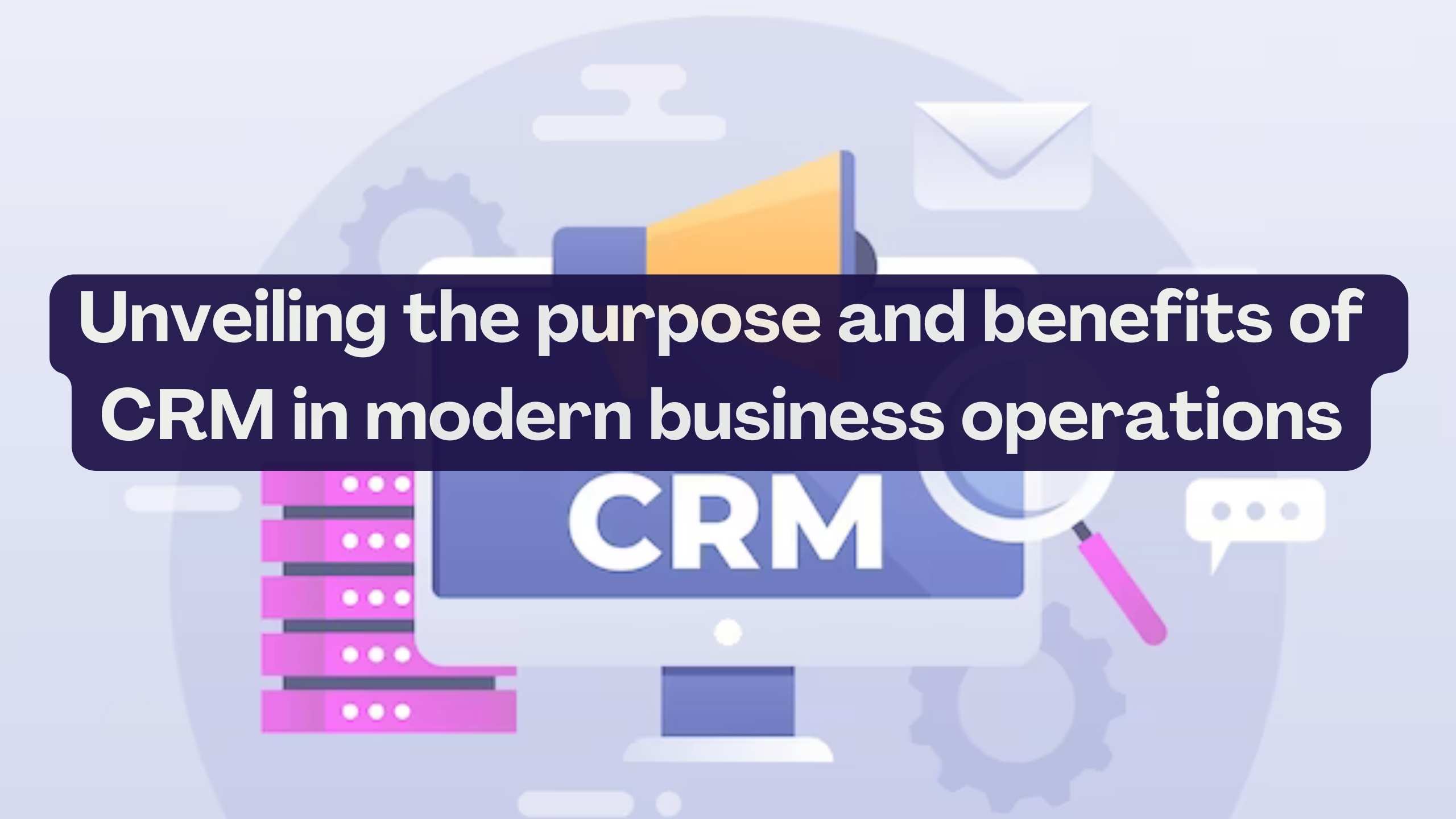Unveiling the purpose and benefits of CRM in modern business operations
- Proposal Software Customer Relationship Management


Unveiling the Purpose and Benefits of CRM in Modern Business Operations
In the fast-paced landscape of modern business, Customer Relationship Management (CRM) has become a cornerstone for success. This article explores the intricacies of CRM, shedding light on its purpose and the myriad benefits it brings to contemporary business operations.
Understanding the Purpose of CRM
- Centralized Customer Data: CRM serves as a centralized repository for customer information. It consolidates data from various touchpoints, providing a holistic view of customer interactions, preferences, and purchase history.
- Improved Customer Relationships: By understanding customer needs and preferences, businesses can tailor their interactions. CRM facilitates personalized communication, enhancing customer relationships and fostering loyalty.
- Streamlined Sales Processes: CRM tools streamline sales processes by automating repetitive tasks, managing leads, and providing insights that empower sales teams. This efficiency leads to quicker sales cycles and increased revenue.
- Enhanced Marketing Strategies: With detailed customer profiles, businesses can create targeted and effective marketing campaigns. CRM enables segmentation, personalized messaging, and tracking of campaign effectiveness.
- Informed Decision-Making: CRM analytics offer valuable insights. Businesses can make data-driven decisions, forecast trends, and identify areas for improvement, contributing to overall strategic success.
The Benefits of Implementing CRM
- Increased Productivity: Automation of routine tasks and streamlined processes lead to increased efficiency, allowing teams to focus on high-value activities.
- Enhanced Customer Satisfaction: Personalized interactions, timely responses, and a better understanding of customer needs contribute to improved satisfaction and loyalty.
- Scalability and Flexibility: CRM systems are scalable, adapting to the evolving needs of businesses. Whether a startup or an enterprise, CRM grows with the organization.
- Real-Time Collaboration: Cloud-based CRM solutions facilitate real-time collaboration among team members, ensuring everyone stays on the same page and can access up-to-date information.
- Data Security and Compliance: CRM platforms prioritize data security and compliance with regulations. Businesses can confidently manage customer information while adhering to privacy standards.
Relevant SaaS Products Transforming CRM
- HubSpot CRM: HubSpot CRM offers a comprehensive solution for customer relationship management, enabling businesses to manage contacts, track deals, and automate tasks seamlessly.
- Salesforce: Salesforce is a leading CRM platform that provides a range of tools for sales, marketing, and customer service, offering a 360-degree view of customer interactions.
- Zoho CRM: Zoho CRM is a user-friendly platform with features for automation, analytics, and multichannel communication, catering to businesses of all sizes.
- Freshsales: Freshsales is a CRM solution by Freshworks, offering a suite of features for lead management, email tracking, and AI-based insights.
- Pipedrive: Pipedrive focuses on sales pipeline management, providing a visual interface to help teams manage deals and prioritize tasks effectively.
Conclusion: Elevating CRM
As businesses embrace the transformative power of CRM, it’s essential to stay informed about the ever-evolving landscape of SaaS tools. Subscribed.FYI emerges as a valuable resource, empowering freelancers, agencies, and teams to navigate and optimize their SaaS stack.
By simplifying decision-making and offering insights into a wide range of SaaS tools, Subscribed.FYI aligns with the goals of businesses aiming for efficient CRM implementation. Sign up for free today and unlock a world of savings on 100+ SaaS tools, ensuring your CRM strategy is backed by the latest and most relevant insights.
Relevant Links:








